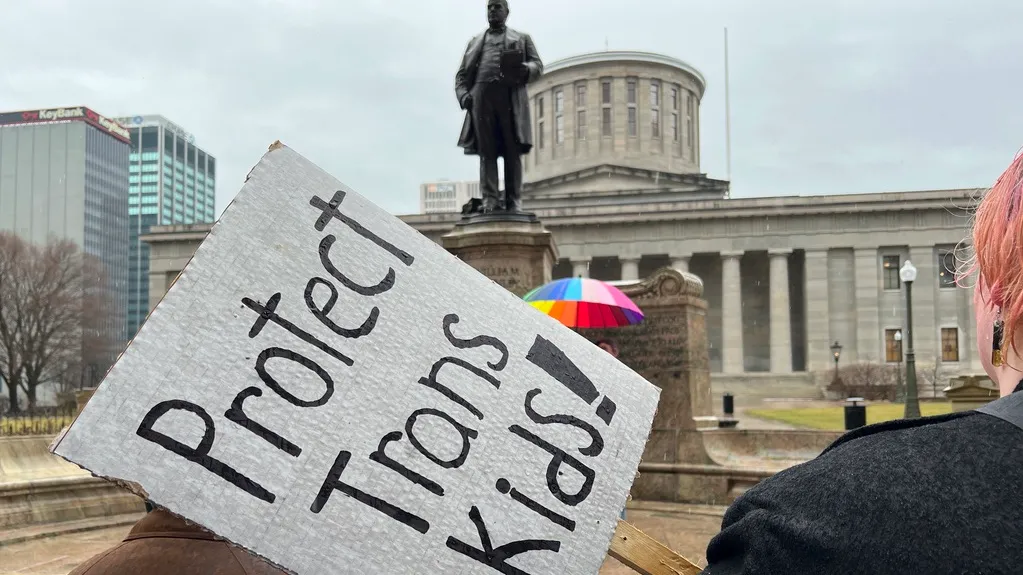January 13, 2013
Paris Streets Filled With Anti Same-Sex Marriage Protesters
Steve Weinstein READ TIME: 3 MIN.
Holding aloft ancient flags and young children, hundreds of thousands of people converged Sunday on the Eiffel Tower to protest the French president's plan to legalize gay marriage and thus allow same-sex couples to adopt and conceive children.
The opposition to President Francois Hollande's plan has underscored divisions among the secular-but-Catholic French, especially more traditional rural areas versus urban enclaves. But while polls show the majority of French still support legalizing gay marriage, that backing gets more lukewarm when children come into play.
The protest march started at three points across Paris, filling boulevards throughout the city as demonstrators walked six kilometers (3 miles) to the grounds of France's most recognizable monument. Paris police estimated the crowd at 340,000, making it one of the largest demonstrations in Paris since an education protest in 1984.
Marriage? OK. Raising Children? Not So OK.
"This law is going to lead to a change of civilization that we don't want," said Philippe Javaloyes, a literature teacher who bused in with 300 people from Franche Comte in the far east. "We have nothing against different ways of living, but we think that a child must grow up with a mother and a father."
Public opposition spearheaded by religious leaders has chipped away at the popularity of Hollande's plan in recent months. About 52 percent of French favor legalizing gay marriage, according to a survey released Sunday, down from as high as 65 percent in August.
French civil unions, allowed since 1999, are at least as popular among heterosexuals as among gay and lesbian couples. But that law has no provisions for adoption or assisted reproduction, which are at the heart of the latest debate.
Hollande's Socialist Party has sidestepped the debate on assisted reproduction, promising to examine it in March after party members split on including it in the latest proposal. That hasn't assuaged the concerns of many in Sunday's protest, however, who fear it's only a matter of time.
Protest Highlights City-Country Divide
"They're talking about putting into national identity cards Parent 1, Parent 2, Parent 3, Parent 4. Mom, dad and the kids are going to be wiped off the map, and that's going to be bad for any country, any civilization," said Melissa Michel, a Franco-American mother of five who was among a group from the south of France on a train reserved specifically for the protest.
Support for gay marriage - and especially adoption by same-sex couples - has been particularly tenuous outside Paris, and people from hundreds of miles from the French capital marched Sunday beneath regional flags with emblems dating back to the Middle Ages, chanting "Daddy, Mommy."
If the French parliament approves the plan, France would become the 12th country in the world to legalize same-sex marriage, and the biggest so far in terms of economic and diplomatic influence.
Harlem Desir, the leader of Hollande's Socialist Party, said the protest would not affect the proposal's progress. The Socialists control Parliament, where the bill is expected to be introduced on Tuesday, with a vote following public debate at the end of January.
"The right to protest is protected in our country, but the Socialists are determined to give the legal right to marry and adopt to all those who love each other," he said. "This is the first time in decades in our country that the right and the extreme right are coming into the streets together to deny new rights to the French."
Steve Weinstein has been a regular correspondent for the International Herald Tribune, the Advocate, the Village Voice and Out. He has been covering the AIDS crisis since the early '80s, when he began his career. He is the author of "The Q Guide to Fire Island" (Alyson, 2007).


